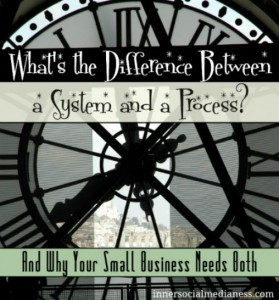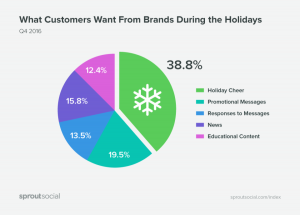By Will McCurdy
Back in 2017, the Fyre Festival managed to grab headlines, but not because it was a huge success. The music festival promised a glamorous, celebrity- and influencer-laden event on a far-off Bahamian island, with luxury accommodations, and charged thousands for the privilege. But things did not go quite as planned. And after failing to provide any of the acts promised, and nothing but a few cheap tents for accommodations, festival organizers were deluged with multimillion dollar lawsuits, two documentaries looking into the fraud, and a six-year prison sentence for one of the founders for defrauding investors and ticket holders. It was one of the worst cases of overpromising and underdelivering on record.
For Billy McFarland, who founded Fyre Festival with rapper Ja Rule, the public humiliation of leaving thousands of festival goers trapped on an island with little more than a few cheese sandwiches, not to mention being a convicted felon (he was released in September after serving four years) and having to forfeit $26 million as part of his sentence, hasn’t stopped him from being able to start a new venture, charging $1,800 a session for personalized business coaching. That’s just a fraction of the $200,000 that Jordan Belfort—aka, the real wolf of Wall Street—charges coaching companies’ sales staff or providing keynote speeches at corporate events. Cases like this are far from the norm, and most former inmates face significant barriers when returning to work.
Perhaps one of the first examples of a former con man who made it big in the world of business consulting is Frank Abagnale. Following stints impersonating an airline pilot, a doctor, a lawyer, and a sociology professor while he was still practically a teenager, Abagnale spent the better part of four years in juvenile prisons from Sweden to France. Though in recent years some journalists have gone on to question the veracity of his claims, Abagnale has managed to build a career as a speaker by cashing in on his notoriety—with some help from a 1977 Johnny Carson appearance and the 2002 film, Catch Me If You Can, a fictionalized retelling of his criminal career, in which he was portrayed by Leonardo DiCaprio.
He founded his consultancy, Abagnale & Associates, in 1976, and now teaches some of the largest businesses in America, including LexisNexis and Experian, about how to prevent fraud.
Though Abagnale feels he can offer valuable insights, he knows private-sector corporations come to him because they know he can draw a crowd. A talk by a famous ex-con, infused with a good story, a dash of humor, and a touch of Hollywood makes a mandatory compliance or cybersecurity seminar more appealing. And despite his lack of conventional qualifications and the fact that his fraud career ended over half a century ago, his significant practical experience remains an ace in the hole when it comes to attracting paying clients.
“I’m not the former policeman or the professor of criminology from Yale,” says Abagnale, who charges north of $3,000 per hour-long speaking engagement. “I’m the guy who actually did these things, and I’m talking from my experience of having done it, how people do it, and how to prevent it from happening to you.”
The interest people have in the life of a former felon, which Abagnale talks about, is something Atlanta native Sheldon Moore has leveraged to build a successful career instructing people how to make money in the trucking industry by starting their own firms. Around 6 years ago, Moore was just out of prison, having served 9 years of a 12-year sentence he’d received in 2008 for cocaine dealing and committing petty check fraud.
In his fifties when he was released, Moore says he struggled with the backbreaking, physically exhausting jobs that were the only ones available to him. After an initially unsuccessful attempt to start a business, Moore says he found a profitable niche in the box-truck business—at which point he turned to consulting, advising others on how to replicate his success. Though his income was initially middling, after learning about social media and how to market himself, he says his consultancy scaled up where he was making thousands of dollars a week. He attributes a key part of this growth—particularly on Instagram, where he has more than 100,000 followers—was a willingness to be open about his past.
“When I went on social media, I told my story about coming out of prison,” Moore says. “When you are yourself, [people are] going to be attracted to you.”
Moore openly talks about his previous struggles with drugs and addiction in his marketing. In addition to his advice on breaking into the box-truck industry, Moore includes spiritually infused nuggets about dealing with life challenges, with an emphasis on Christianity, which he says helped him in prison. Though these insights don’t come cheap—an hour of Moore’s words will set you back $360—Moore claims that in 2021 his coaching business grossed $1.5 million, and in 2022 it made $1.8 million.
Despite the fact that both Moore and Abagnale have been able to build comfortable post-prison lives, these two are outliers. According to a report from the Bureau of Justice Statistics (BJS), detailing the experiences of more than 500,000 ex-inmates, roughly 60% were jobless at any time during the four years after their release. Not only is joblessness a common problem, but job insecurity also looms large. The ex-inmates in the report averaged 3.4 jobs over the study’s four-year period, not the best reflection of the working conditions on offer.
In addition, when ex-inmates do get jobs, they generally earn less than the average American worker. Four years after their release from jail, the average ex-con earned 84 cents for every dollar of the U.S. median wage. Jobs were mainly concentrated in fields like waste management, retail, nonunion construction and manufacturing, and food service—careers that don’t provide much opportunity to get ahead economically.
Stacy Brooks, senior director of growth at Persevere, a Tennessee-based nonprofit that helps the South’s formerly incarcerated build new lives, says it can be “incredibly difficult” for individuals to find employment after incarceration, adding that this only makes the rest of their obstacles “even more daunting.”
“Many employers require background checks and will automatically exclude anyone who has a record, which prevents an individual from showing the changes they have made and the experience they’ve gained over the course of their incarceration,” she explains.
But Brooks thinks it’s important to realize that the issues stopping ex-criminals from getting their lives together go far beyond simply denying them jobs based on their past offenses.
“Medical insurance can be a huge barrier—it prevents people from caring for their physical and mental health,” says Brooks. “Many people have unresolved trauma that requires mental health treatment,” also “incarceration can cause trauma and that is also often underserved.”

Brooks highlights issues around housing insecurity, pointing to instances where landlords have denied leases as a result of past convictions, as well as family issues that can inhibit reintegration into society—which carries its own stigma.
Exceptions often prove the rule. Rags-to-riches post-prison turnaround stories are rare, but there does seem to be an appetite to learn from those whose life paths have taken a bad turn, giving ex-cons a real chance to find a market for their skill sets. People’s minds seem to be captured just as much by failure turned to gold as by unblemished win streaks.
“No matter how much good you do, there’s always going to be people who are going to say, ‘You can’t trust that guy he was a con man,’” says Abagnale. “In my own neighborhood, these people still think ‘I can’t believe this guy lives here. He’s an ex-criminal.”
(9)









